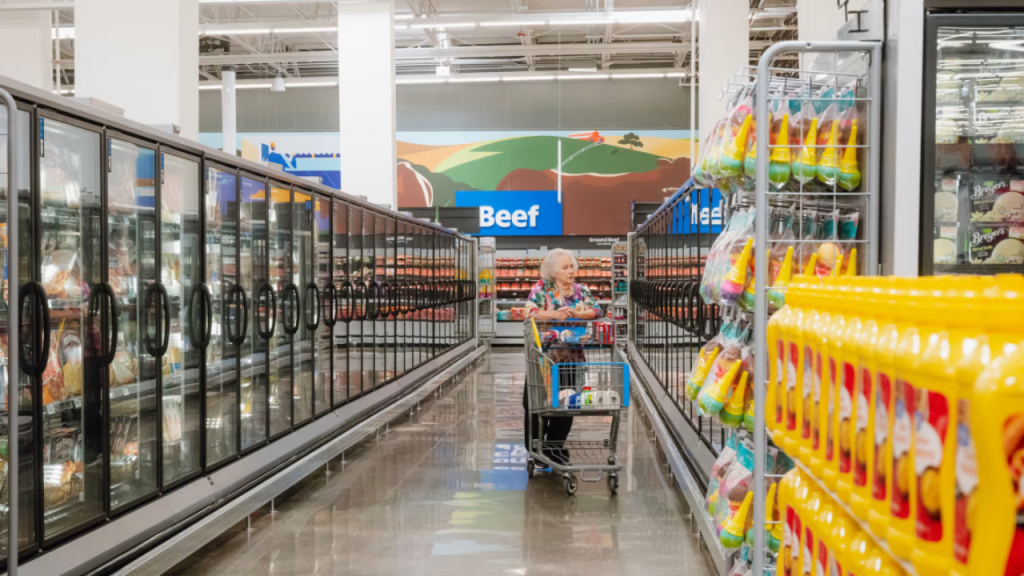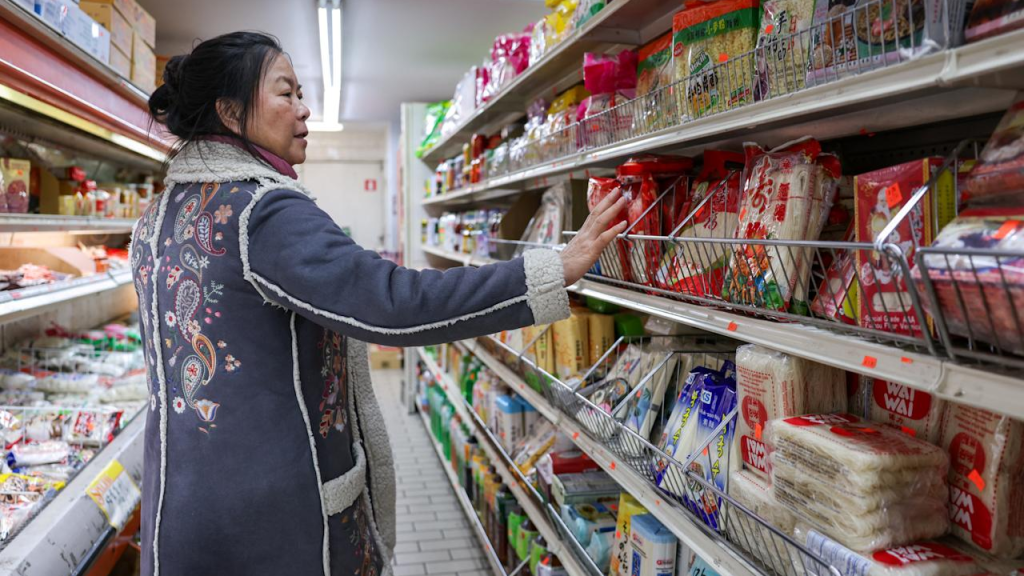
U.S. retailers are warning that consumers might soon face empty store shelves and disrupted supply chains, similar to what happened during the COVID pandemic, if President Donald Trump’s tariffs on China remain in place.
The tariffs, which rose to 145% this month, are forcing companies to cancel shipments from China and halt new orders. This has led to a significant drop in shipments, with data showing that the number of freight vessels arriving at the Port of Los Angeles could fall by 33% year-over-year by May 10.
Retailers typically prepare for two key shopping seasons—back-to-school sales in the fall and the winter holidays. However, the current uncertainty around tariffs is making it hard for businesses to plan effectively.
Jonathan Gold, Vice President of the National Retail Federation, explains that retailers are struggling to make decisions on what to order and at what prices due to the ongoing tariff issues.
Under the new tariff system, U.S. companies must pay a hefty fee to import goods. For instance, a company importing an item worth $100 from China would have to pay $145 in tariffs, except for electronics and pharmaceuticals.
This fee could eliminate any profits and either force companies to sell at a loss or raise prices to levels that consumers may find too expensive.
The impact is already being felt, with several companies halting their orders. Chinese vendors, including those supplying large U.S. retailers like Target, have reported that shipments are being delayed.
One vendor said their press-on nails, ready to ship, are stuck in China, and she doesn’t expect to send any products to the U.S. in the first half of the year.
If the tariffs remain at their current levels, the National Retail Federation predicts imports will drop by 20% in the second half of the year.
Some of the most affected products include low-cost footwear, clothing, toys, and electronics, many of which are primarily made in China. Perishable goods, such as apple juice and fish, are also in short supply, as they are harder to stockpile.
The situation is becoming increasingly concerning. Sean Stein, President of the U.S.-China Business Council, warned that the U.S. will begin running out of goods in the coming weeks if the problem isn’t addressed soon.
He compared it to the toilet paper shortages seen during the early days of the COVID pandemic. If the issue isn’t resolved soon, the U.S. could face hoarding and shortages on a larger scale.
The looming product shortages have caught the attention of the White House, especially ahead of major holidays like the Fourth of July and Christmas. After a meeting with retailers,
President Trump indicated he was considering reducing tariffs on Chinese goods. However, no formal action has been taken, and Chinese officials denied that any official trade talks had taken place.

While larger retailers may have stocked up on goods in anticipation of the tariffs, smaller businesses are struggling. Many don’t have the resources to purchase goods in advance or to negotiate with manufacturers.
Jessica Berger, the CEO of Bundle x Joy, a pet products company, shared her concerns about facing a $180,000 tariff bill for a shipment of dog toys. She noted that without financing, many small businesses could be forced out of business. In the future, she may need to raise her prices to offset the cost of the tariffs, but that could result in lower sales as consumers cut back on discretionary spending.
The disruptions could lead to a backup of goods at U.S. ports, with containers going unclaimed, similar to what happened during the COVID pandemic. Sean Stein predicts that the ports could soon face significant congestion, creating further delays.
Even if tariffs are reduced, the supply chain disruptions are expected to last weeks or even months, considering the time it takes for ships to travel across the Pacific and for other parts of the supply chain to return to normal.
Analysts warn that truckers, affected by the reduced demand for hauling goods, may leave the industry, which could lead to a shortage of drivers later in the year.
The reduced imports are also affecting the broader shipping industry. As fewer goods arrive at U.S. ports, trucks that would typically transport goods are being reassigned to other markets, flooding the trucking industry with excess capacity.
This will likely lead to a decline in trucker pay and could result in fewer truck drivers as the industry faces further disruptions in the second half of the year.
The situation remains fluid, but if the tariff issues are not addressed soon, both small and large retailers, as well as U.S. consumers, will face significant challenges ahead.
